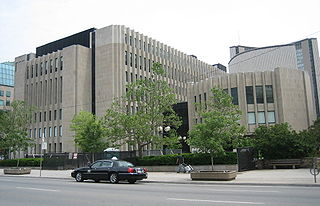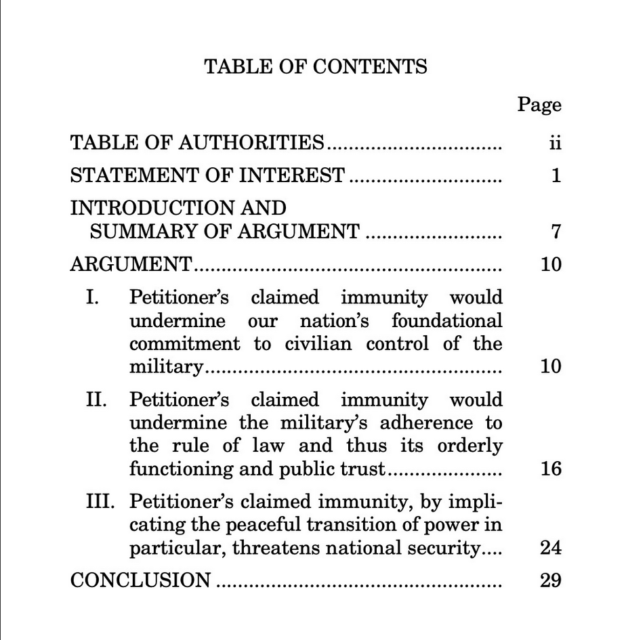 What connects these offices in particular is that they confer imperium, a distinctive concept in Roman law and governance. The word imperium derives from the verb impero, “to command, order” and so in a sense imperium simply means “command”, but in its implication it is broader. Imperium was understood to be the power of the king (Cic. Leg. 3.8), encompassing both the judicial role of the king in resolving disputes and the military role of the king in leading the army. In this sense, imperium is the power to deploy violence on behalf of the community: both internal (judicial) violence and external (military) violence.
What connects these offices in particular is that they confer imperium, a distinctive concept in Roman law and governance. The word imperium derives from the verb impero, “to command, order” and so in a sense imperium simply means “command”, but in its implication it is broader. Imperium was understood to be the power of the king (Cic. Leg. 3.8), encompassing both the judicial role of the king in resolving disputes and the military role of the king in leading the army. In this sense, imperium is the power to deploy violence on behalf of the community: both internal (judicial) violence and external (military) violence.
That power was represented visually around the person of magistrates with imperium through the lictors (Latin: lictores), attendants who follows magistrates with imperium, mostly to add dignity to the office but who also could act as the magistrate’s “muscle” if necessary. The lictors carried the fasces, a set of sticks bundled together in a rod; often in modern depictions the bundle is thick and short but in ancient artwork it is long and thin, the ancient equivalent of a policeman’s less-lethal billy club. That, notionally non-lethal but still violent, configuration represented the imperium-bearing magistrate’s civil power within the pomerium (recall, this is the sacred boundary of the city). When passing beyond the pomerium, an axe was inserted into the bundle, turning the non-lethal crowd-control device into a lethal weapon, reflective of the greater power of the imperium-bearing magistrate to act with unilateral military violence outside of Rome (though to be clear the consul couldn’t just murder you because you were on your farm; this is symbolism). The consuls were each assigned 12 lictors, while praetors got six. Pro-magistrates [proconsuls and propraetors] had one fewer lictor than their magistrate versions to reflect that, while they wielded imperium, it was of an inferior sort to the actual magistrate of the year.
What is notable about the Roman concept of imperium is that it is a single, unitary thing: multiple magistrates can have imperium, you can have greater or lesser forms of imperium, but you cannot break apart the component elements of imperium.1 This is a real difference from the polis, where the standard structure was to take the three components of royal power (religious, judicial and military) and split them up between different magistrates or boards in order to avoid any one figure being too powerful. For the Romans, the royal authority over judicial and military matters were unavoidably linked because they were the same thing, imperium, and so could not be separated. That in turn leads to Polybius’ awe at the power wielded by Roman magistrates, particularly the consuls (Polyb. 6.12); a polis wouldn’t generally focus so much power into a single set of hands constitutionally (keeping in mind that tyrants are extra-constitutional figures).
So what does imperium empower a magistrate to do? All magistrates have potestas, the power to act on behalf of the community within their sphere of influence. Imperium is the subset of magisterial potestas which covers the provision of violence for the community and it comes in two forms: the power to raise and lead armies and the power to organize and oversee courts. Now we normally think of these powers as cut by that domi et militiae (“at home and on military service”) distinction we discussed earlier in the series: at home imperium is the power to organize courts (which are generally jury courts, though for some matters magistrates might make a summary judgement) and abroad the power to organize armies. But as we’ll see when we get to the role of magistrates and pro-magistrates in the provinces, the power of legal judgement conferred by imperium is, if anything, more intense outside of Rome. That said it is absolutely the case that imperium is restrained within the pomerium and far less restrained outside of it.
There were limits on the ability of a magistrate with imperium to deploy violence within the pomerium against citizens. The Lex Valeria, dating to the very beginning of the res publica stipulated that in the case of certain punishments (death or flogging), the victim had the right of provocatio to call upon the judgement of the Roman people, through either an assembly or a jury trial. That limit to the consul’s ability to use violence was reinforced by the leges Porciae (passed in the 190s and 180s), which protected civilian citizens from summary violence from magistrates, even when outside of Rome. That said, on campaign – that is, militae rather than domi – these laws did not exempt citizen soldiers from beating or even execution as a part of military discipline and indeed Roman military discipline struck Polybius – himself an experienced Greek military man – as harsh (Polyb. 6.35-39).
In practice then, the ability of a magistrate to utilize imperium within Rome was hemmed in by the laws, whereas when out in the provinces on campaign it was far less limited. A second power, coercitio or “coercion” – the power of a higher magistrate to use minor punishments or force to protect public order – is sometimes presented as a distinct power of the magistrates, but I tend to agree with Lintott (op. cit., 97-8) that this rather overrates the importance of the coercive powers of magistrates within the pomerium; in any case, the day-to-day maintenance of public order generally fell to minor magistrates.
While imperium was a “complete package” as it were, the Romans clearly understood certain figures as having an imperium that outranked others, thus dictators could order consuls, who could order praetors, the hierarchy neatly visualized by the number of lictors each had. This could create problems, of course, when Rome’s informal systems of hierarchy conflicted with this formal system, for instance at the Battle of Arausio, the proconsul Quintus Servilius Caepio refused to take orders from the consul, Gnaeus Mallius Maximus, because the latter was his social inferior (being a novus homo, a “new man” from a family that hadn’t yet been in the Senate and thus not a member of the nobiles), despite the fact that by law the imperium of a sitting consul outranked that of a pro-consul. The result of that bit of insubordination was a military catastrophe that got both commanders later charged and exiled.
Finally, a vocabulary note: it would be reasonable to assume that the Latin word for a person with imperium would be imperator2 because that’s the standard way Latin words form. And I will say, from the perspective of a person who has to decide at the beginning of each thing I write what circumlocution I am going to use to describe “magistrate or pro-magistrate with imperium“, it would be remarkably fortunate if imperator meant that, but it doesn’t. Instead, imperator in Latin ends up swallowed by its idiomatic meaning of “victorious general”, as it was normal in the republic for armies to proclaim their general as imperator after a major victory (which set the general up to request a triumph from the Senate). In the imperial period, this leads to the emperors monopolizing the term, as all of the armies of Rome operated under their imperium and thus all victory accolades belonged to the emperor. That in turn leads to imperator becoming part of the imperial title, from where it gives us our word “emperor”.
That said, the circumlocution I am going to use here, because this isn’t a formal genre and I can, is “imperium-haver”. I desperately wish I could use that in peer reviewed articles, but I fear no editor would let me (while Reviewer 2 will predictably object to “general”, “commander” or “governor” for all being modern coinages).3
Bret Devereaux, “Collections: How to Roman Republic 101, Part IIIb: Imperium”, A Collection of Unmitigated Pedantry, 2023-08-18.
1. I should note here that Drogula (in Commanders and Command (2015)) understands imperium a bit differently than this more traditional version I am presenting (in line with Lintott’s understanding). He contends that imperium was an entirely military power which was not necessary for judicial functions and was not only indivisible but also, at least early on, did not come in different degrees. In practice, I’m not sure the Romans were ever so precise with their concepts as Drogula wants them to be.
2. Pronunication note because this bothers me when I hear this word in popular media: it is not imPERator, but impeRAtor, because that “a” is long by nature, and thus keeps the stress.
3. And yes, really, I have had reviewers object to “general” or “commander” to mean “the magistrate or pro-magistrate with imperium in the province”. There is no pleasing Reviewer 2.

















